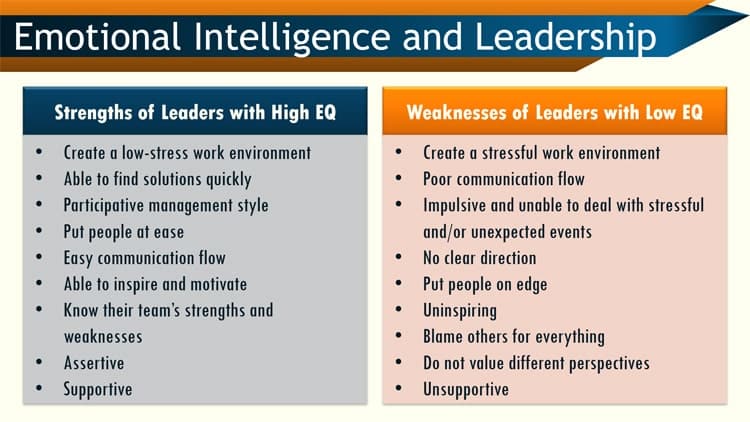In a world where self-improvement has become a buzzword, it is easy to get lost in the sea of personal development strategies. However, one powerful tool that often gets overlooked is emotional intelligence. Developing emotional intelligence not only allows individuals to better understand and manage their own emotions, but it also enables them to effectively connect with and influence others. Through the practice of emotional intelligence coaching and mentorship, individuals can empower themselves and those around them to become better versions of themselves. In this article, we will explore the transformative power of emotional intelligence and how coaching and mentorship in this area can help individuals unleash their potential, find happiness, and harmonize their relationships. So, let’s dive into the world of emotional intelligence and uncover the key strategies to empower others and create lasting positive change.

This image is property of pixabay.com.
The Importance of Emotional Intelligence
Emotional intelligence plays a crucial role in personal growth and development, as well as in empowering others. It refers to the ability to recognize, understand, and manage our own emotions, as well as to empathize with others and effectively communicate with them. In today’s fast-paced and interconnected world, emotional intelligence is becoming increasingly important in both personal and professional contexts.
Definition of Emotional Intelligence
Emotional intelligence encompasses a range of skills and abilities that enable us to navigate the complexities of human emotions. It consists of four core components: self-awareness, emotional self-regulation, empathy, and social skills. Let’s take a closer look at each of these components and how they contribute to emotional intelligence.
Self-Awareness: The Foundation of Emotional Intelligence
Self-awareness is the ability to recognize and understand our own emotions, strengths, weaknesses, and values. It involves being in tune with our thoughts and feelings, as well as being aware of how they impact our behavior and interactions with others. By developing self-awareness, we can better manage our emotions and make more mindful decisions.
Emotional Self-Regulation: Managing Emotions Effectively
Emotional self-regulation refers to the ability to manage and control our emotions in a healthy and constructive manner. It involves being able to calm ourselves down when we’re feeling overwhelmed or angry, and to express our emotions in a way that is appropriate and respectful. By learning to regulate our emotions, we can avoid impulsive reactions and handle challenging situations with greater maturity and composure.
Empathy: Understanding and Connecting with Others’ Emotions
Empathy is the ability to understand and share the emotions of others. It allows us to put ourselves in someone else’s shoes and see things from their perspective. By practicing empathy, we can build stronger and more meaningful relationships, as well as foster a sense of compassion and understanding for others. It helps us connect with others on a deeper level and create a supportive and inclusive environment.
Social Skills: Nurturing Healthy Relationships
Social skills involve the ability to communicate effectively, build relationships, and navigate social situations with confidence and ease. It includes skills such as active listening, clear and concise communication, and conflict resolution. By honing our social skills, we can foster healthier relationships, resolve conflicts more effectively, and collaborate more efficiently with others.
Emotional Intelligence and Personal Growth
Emotional intelligence is closely tied to personal growth and self-improvement. By developing our emotional intelligence, we can enhance our self-awareness, regulate our emotions, and build better relationships with others. This, in turn, leads to greater self-esteem, improved mental well-being, and a more fulfilling and purposeful life.
One of the key aspects of personal growth through emotional intelligence is the ability to identify and address limiting beliefs. Limiting beliefs are negative thoughts or beliefs that hold us back and prevent us from reaching our full potential. By recognizing and challenging these beliefs, we can overcome self-doubt and develop a more positive mindset.
Another important aspect of personal growth is emotional healing. Emotional intelligence allows us to acknowledge and process our past traumas and emotional wounds. By effectively dealing with our emotions, we can heal and grow from these experiences, enabling us to move forward with a renewed sense of purpose and resilience.

This image is property of pixabay.com.
Benefits of Emotional Intelligence
There are numerous benefits to developing emotional intelligence. In personal life, individuals with high emotional intelligence often experience improved mental well-being and have healthier and more fulfilling relationships. They are more self-aware, which allows them to better understand their own needs and desires, leading to greater happiness and fulfillment.
In the professional realm, emotional intelligence is highly valued. It is often a key differentiator in leadership roles and is strongly associated with success and performance. Individuals with emotional intelligence are more able to navigate complex social dynamics, build effective teams, and communicate their ideas with clarity and empathy. They are also better equipped to handle stress and conflict, creating a more positive work environment.
The Role of Emotional Intelligence in Empowering Others
Emotional intelligence plays a crucial role in empowering others through coaching and mentorship. Whether you are a coach or a mentor, emotional intelligence allows you to connect with others on a deeper level, understand their needs and aspirations, and support them in their personal and professional growth.
Difference between Coaching and Mentorship
Coaching and mentorship are two distinct approaches to empowering others, although they share some similarities. Coaching is a structured and goal-oriented process that focuses on helping individuals identify and achieve their desired outcomes. It involves asking powerful questions, active listening, and providing guidance and support.
On the other hand, mentorship is a more informal and relationship-based approach. It draws on the mentor’s own experiences and wisdom to guide and support the mentee in their personal and professional development. While coaching focuses on specific goals and actions, mentorship provides a broader perspective and helps individuals navigate through challenges and decisions.
Coaching for Personal and Professional Development
Coaching is an effective tool for empowering others by helping them identify their strengths, clarify their goals, and develop action plans to achieve their desired outcomes. Through active listening and powerful questioning, coaches encourage self-reflection and self-discovery, enabling individuals to gain a deeper understanding of themselves and their aspirations.
Coaches also provide accountability and support their clients in overcoming obstacles and limiting beliefs. By helping individuals recognize and challenge their self-imposed limitations, coaches empower them to take bold actions and make positive changes in their lives.
Mentorship for Guidance and Support
Mentorship, on the other hand, focuses on providing guidance, support, and wisdom based on the mentor’s own experiences and expertise. Mentors act as role models and offer insights and advice to help the mentees navigate through challenges, make informed decisions, and grow both personally and professionally.
Mentors also provide a safe and supportive space for mentees to share their thoughts and concerns. By actively listening and offering empathy, mentors create an environment that encourages open communication and self-reflection, fostering the mentees’ personal growth and development.
Complementary Relationship between Coaching and Mentorship
Coaching and mentorship are not mutually exclusive. In fact, they can be complementary and provide individuals with different perspectives and approaches to personal and professional growth. While coaching focuses on goal-setting and action planning, mentorship offers guidance and wisdom based on the mentor’s own experiences.
By combining the strengths of coaching and mentorship, individuals can benefit from both structured guidance and a broader perspective. This integrated approach can enhance personal and professional development, as well as empower individuals to reach their full potential.
Building Emotional Intelligence
Building emotional intelligence is a lifelong journey that requires self-awareness, practice, and reflection. By focusing on each of the core components of emotional intelligence – self-awareness, emotional self-regulation, empathy, and social skills – individuals can develop their emotional intelligence and empower themselves and others.
Self-Awareness: The Foundation of Emotional Intelligence
Self-awareness is the foundation upon which emotional intelligence is built. It involves being in tune with our own thoughts, feelings, and behaviors, as well as understanding how they impact our interactions with others. Developing self-awareness requires regular self-reflection and introspection, as well as seeking feedback from others.
One effective way to cultivate self-awareness is through mindfulness practice. Mindfulness involves paying attention to the present moment non-judgmentally, and can help individuals develop a greater sense of self-awareness and understanding. By practicing mindfulness, individuals can observe their thoughts and emotions without attachment, allowing them to respond to situations with greater clarity and intentionality.
Emotional Self-Regulation: Managing Emotions Effectively
Emotional self-regulation is the ability to effectively manage and control our emotions, allowing us to respond to situations in a calm and constructive manner. It involves recognizing our emotional triggers and finding healthy ways to cope with stress and frustrations.
One technique for enhancing emotional self-regulation is deep breathing. Deep breathing activates the body’s relaxation response, helping to reduce stress and anxiety. By taking slow, deep breaths during moments of emotional intensity, individuals can regulate their emotions and maintain a sense of calmness and clarity.
Empathy: Understanding and Connecting with Others’ Emotions
Empathy is the ability to understand and share the emotions of others. It involves putting ourselves in someone else’s shoes and seeing things from their perspective. Developing empathy requires active listening and observing, as well as cultivating a genuine interest in understanding others.
One strategy for enhancing empathy is active listening. Active listening involves fully engaging with the speaker, focusing on their words and non-verbal cues, and withholding judgment. By actively listening, individuals can better understand others’ emotions and experiences, fostering a sense of connection and empathy.
Social Skills: Nurturing Healthy Relationships
Social skills are crucial for building and maintaining healthy relationships. They involve effective communication, conflict resolution, and the ability to collaborate and build rapport with others. Developing social skills requires continuous practice and feedback.
One important social skill is assertive communication. Assertive communication involves expressing one’s thoughts, feelings, and needs in a clear and respectful manner, while also listening to and considering the perspectives of others. By practicing assertive communication, individuals can improve their relationships and create open and honest lines of communication.

This image is property of pixabay.com.
Coaching Techniques for Empowering Others
Coaching techniques are invaluable tools for empowering others and facilitating personal and professional growth. The following coaching techniques can help coaches foster trust, understanding, and growth in their clients.
Active Listening: Fostering Trust and Understanding
Active listening is a fundamental coaching technique that involves fully engaging with the speaker and demonstrating genuine interest and empathy. It requires giving your full attention to the client, both verbally and non-verbally, and refraining from interrupting or judging. By actively listening, coaches create a safe and supportive environment for clients to explore their thoughts and emotions.
Questioning and Reflecting: Encouraging Self-Exploration
Questioning and reflecting are powerful coaching techniques that encourage clients to delve deeper into their thoughts and emotions. Open-ended questions invite clients to explore different perspectives and possibilities, while reflective statements help them gain insight and clarity. By asking thought-provoking questions and offering reflective statements, coaches can support clients in their self-exploration and discovery.
Goal Setting: Clarifying and Creating Action Plans
Goal setting is a key coaching technique that allows clients to clarify and define their desired outcomes. It involves helping clients identify their goals, determine the necessary actions, and create a plan of action. By setting clear and achievable goals, coaches empower clients to take ownership of their growth and development.
Feedback and Accountability: Supporting Growth and Accountability
Feedback is a crucial coaching technique that provides clients with valuable insights and guidance. It involves offering constructive feedback in a supportive and non-judgmental manner, highlighting areas for improvement and growth. Additionally, coaches can help clients stay accountable by regularly reviewing progress and celebrating achievements. By providing feedback and accountability, coaches support clients in their journey of personal and professional growth.
Mentorship Approaches for Empowering Others
Mentorship is a relationship-based approach to empowering others, and there are several mentorship approaches that can be effective in supporting personal and professional growth.
Sharing Experiences and Wisdom
One of the primary roles of a mentor is to share their own experiences and wisdom with the mentee. By sharing their successes, failures, and lessons learned, mentors can provide valuable insights and guidance. This allows the mentee to gain a broader perspective and learn from the mentor’s experiences.
Guidance and Advice: Navigating Challenges
Mentors can provide guidance and advice to help mentees navigate through challenges and obstacles. By drawing on their own expertise and knowledge, mentors can offer practical solutions and strategies for overcoming difficulties. This guidance and support can empower mentees to overcome challenges and achieve their goals.
Providing Support and Encouragement
Mentees often benefit from the emotional support and encouragement provided by their mentors. By offering a safe and non-judgmental space for mentees to share their thoughts and concerns, mentors create an environment that fosters personal growth and self-confidence. Mentors can provide encouragement and affirmation, helping mentees build resilience and belief in their own abilities.
Championing Personal Growth and Success
Mentors play a crucial role in championing the personal growth and success of their mentees. They provide support, guidance, and opportunities for growth, and help mentees recognize and develop their strengths. By acting as a mentor, individuals can empower others to reach their full potential and achieve their goals.
Creating Safe and Supportive Environments
Creating safe and supportive environments is essential in empowering others through emotional intelligence. By fostering psychological safety, building trust, promoting open communication, and recognizing and respecting boundaries, individuals can create environments that promote growth, well-being, and empowerment.
Creating Psychological Safety
Psychological safety refers to the belief that one can express themselves without fear of judgment or negative consequences. It is a fundamental aspect of creating a safe and supportive environment. By promoting psychological safety, individuals can encourage open and honest communication, as well as empower others to take risks and share their thoughts and ideas.
Building Trust and Confidentiality
Trust is the foundation of any successful relationship, including coaching and mentorship. To empower others, it is crucial to build trust and establish a sense of confidentiality. By honoring commitments, maintaining confidentiality, and demonstrating integrity, individuals can establish trust and create an environment where others feel safe and supported.
Promoting Open Communication
Open communication is vital in empowering others through emotional intelligence. By promoting open communication, individuals encourage others to express their thoughts, feelings, and concerns without fear of judgment or criticism. This fosters a sense of trust and allows for more meaningful and productive interactions.
Recognizing and Respecting Boundaries
Respecting boundaries is an essential aspect of creating a safe and supportive environment. It involves understanding and acknowledging others’ personal space, privacy, and limits. By respecting boundaries, individuals demonstrate empathy and create an environment that promotes trust, respect, and empowerment.
Addressing Limiting Beliefs and Emotional Blocks
Addressing limiting beliefs and emotional blocks is a crucial step in empowering ourselves and others. Limiting beliefs are negative thoughts or beliefs that hold us back and prevent us from reaching our full potential. By identifying, challenging, and reframing these beliefs, we can overcome self-doubt and unlock our true potential.
Identifying Limiting Beliefs
Identifying limiting beliefs involves recognizing the negative thoughts and beliefs that may be holding us back. This requires self-awareness and reflection, as well as a willingness to challenge our own assumptions. By being honest with ourselves and examining our thoughts, we can uncover the limiting beliefs that may be blocking our growth.
Challenging and Reframing Limiting Beliefs
Challenging and reframing limiting beliefs involves questioning the validity of these beliefs and replacing them with more empowering and positive thoughts. This can be done through techniques such as cognitive reframing, which involves consciously shifting our perspective and replacing negative thoughts with more positive and empowering ones.
Emotional Release Techniques
Addressing emotional blocks often requires techniques and practices that facilitate emotional release. Techniques such as journaling, meditation, and expressive arts can help individuals process and release stored emotions, allowing for healing and personal growth. By utilizing these techniques, individuals can release emotional blocks and free themselves to move forward.
Supporting Emotional Healing and Growth
Supporting emotional healing and growth involves creating a safe and supportive environment for individuals to explore and process their emotions. This can be done through active listening, empathy, and providing a non-judgmental space for individuals to share their experiences. By offering support and understanding, we can empower others to heal and grow emotionally.
Empowering through Emotional Intelligence at Work
Emotional intelligence plays a vital role in the workplace, empowering individuals to become effective leaders, foster positive work environments, manage conflicts, and promote collaboration and teamwork.
Leadership and Emotional Intelligence
Effective leadership requires emotional intelligence, as it involves understanding and managing emotions – both your own and those of others. Leaders with high emotional intelligence are able to inspire and motivate their teams, communicate effectively, and navigate complex interpersonal dynamics. By leading with emotional intelligence, individuals can empower their teams and achieve greater success.
Creating a Positive Work Environment
Emotional intelligence can contribute to creating a positive work environment where individuals feel valued, supported, and empowered. By practicing empathy, active listening, and conflict management skills, individuals can foster a culture of trust, respect, and collaboration. This leads to increased job satisfaction, productivity, and overall well-being in the workplace.
Conflict Management and Emotional Intelligence
Conflict is an inevitable part of any workplace, but it can be effectively managed through emotional intelligence. Individuals with high emotional intelligence are able to regulate their own emotions, understand others’ perspectives, and communicate assertively and empathetically. By employing these skills, individuals can navigate conflicts in a constructive and productive manner, fostering resolution and growth.
Team Dynamics and Collaboration
Emotional intelligence is essential for building strong team dynamics and promoting collaboration. By practicing empathy, active listening, and effective communication, individuals can develop a deeper understanding of their teammates’ emotions and needs. This allows for increased cooperation, better decision-making, and a more cohesive and productive team environment.
Applying Emotional Intelligence in Personal Life
Emotional intelligence is not limited to the workplace – it has a significant impact on our personal lives as well. By developing emotional intelligence, we can enhance our relationships, parenting skills, self-care practices, and decision-making processes.
Enhancing Relationships
Emotional intelligence is crucial for building and maintaining healthy and fulfilling relationships. By practicing empathy, active listening, and effective communication, individuals can better understand their loved ones’ emotions and needs. This leads to stronger connections, improved conflict resolution, and deeper intimacy in relationships.
Parenting and Emotional Intelligence
Emotional intelligence is especially important in parenting, as it allows individuals to understand and respond to their children’s emotions effectively. By practicing empathy, emotional self-regulation, and active listening, parents can create a safe and supportive environment for their children to express themselves. This fosters healthy emotional development and empowers children to navigate and regulate their own emotions.
Self-Care and Emotional Well-being
Emotional intelligence is closely tied to self-care and emotional well-being. By developing self-awareness, emotional self-regulation, and social skills, individuals can better manage stress, practice self-compassion, and establish healthy boundaries. This leads to increased emotional well-being, resilience, and overall happiness.
Emotional Intelligence in Decision Making
Emotional intelligence can significantly impact decision making. By practicing self-awareness and emotional self-regulation, individuals can make decisions that align with their values, goals, and emotions. This allows for more authentic and confident decision making, leading to greater fulfillment and success.
Continuous Development and Growth
Developing emotional intelligence is a continuous process that requires self-reflection, seeking feedback, and expanding one’s emotional intelligence competencies. By adopting a growth mindset and practicing empathy and compassion, individuals can continue to develop their emotional intelligence and empower themselves and others.
Self-Reflection and Self-Assessment
Self-reflection and self-assessment are key practices for continuous development and growth. By regularly reflecting on our thoughts, emotions, and behaviors, we can identify areas for improvement and develop strategies for personal and professional growth. Self-assessment tools, such as emotional intelligence assessments, can also provide valuable insights and feedback.
Seeking Feedback and Coaching
Seeking feedback and coaching is essential for developing emotional intelligence. Feedback from others can provide valuable insights and perspectives, helping us identify blind spots and areas for improvement. Additionally, working with a coach or mentor can provide guidance, support, and accountability, accelerating our growth and development.
Expanding Emotional Intelligence Competencies
Expanding emotional intelligence competencies involves actively practicing and refining the core components of emotional intelligence – self-awareness, emotional self-regulation, empathy, and social skills. By continuously honing these skills through self-reflection, practice, and feedback, individuals can further develop their emotional intelligence and empower themselves and others.
Practicing Empathy and Compassion
Practicing empathy and compassion is essential for continuous development and growth in emotional intelligence. By putting ourselves in others’ shoes, listening actively, and offering support and understanding, we can foster deeper connections and create a more inclusive and empathetic world.
In conclusion, emotional intelligence plays a pivotal role in personal growth, empowering others through coaching and mentorship, and creating supportive environments. By developing emotional intelligence, individuals can enhance self-awareness, regulate their emotions, build stronger relationships, and make more mindful decisions. By practicing coaching techniques and mentorship approaches, individuals can empower others to reach their full potential and achieve their goals. Ultimately, continuous development and growth in emotional intelligence can lead to a more harmonious and fulfilling life.



